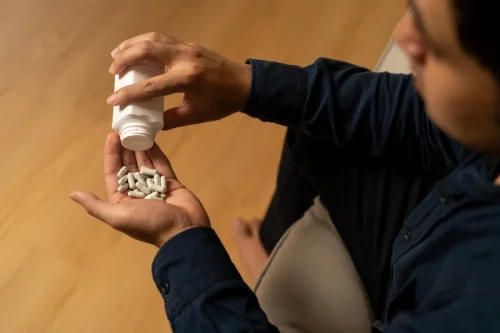
Lopez, meanwhile, praised the establishment of the task force, which she said she believes will deliver meaningful results to struggling people across the state. «Instead of addressing the root causes of this tragic epidemic, he used his press conference to parrot anti-immigrant rhetoric and blame rather than deliver real-time solutions,» King said in a statement. «Why today? The day ballots are mailed out in his increasingly competitive reelection race? This issue has been serious for a long time, but suddenly the governor decides to make a show of it.» The governor blamed the Biden administration’s handling of the U.S. southern border for the influx of fentanyl to the state.
- When officers announce a seizure of fentanyl, it’s not unusual for the drug to be quantified as enough to kill a large number of people.
- According to the DEA, 42% of pills they tested for fentanyl contained at least 2 mg of fentanyl, a potentially lethal dose.
- So, the problem that policymakers have, therefore, is that they are fishing in the dark for the effective methods by which to enforce laws, to try and nip off these problems before they they can occur.
- It is important that we clarify and let everyone know that fentanyl cannot really be absorbed through the skin because people who have overdosed on fentanyl may have only minutes to live.
Official answer
Today, federal law enforcement arrested the fourth and fifth defendants charged in connection with a series of burglaries and robberies of commercial businesses, ATMs, and vehicles in the D.C. Denver authorities have charged California resident Jamal Gamal with distributing fentanyl that led to the death of a Denver resident. The first victims were discovered Thursday at a public housing project and other areas in the coastal town of Arecibo. The eighth victim was a 26-year-old man who died at a hospital where he was being treated, police said in a statement. So, the problem that policymakers have, therefore, is that they are fishing in the dark for the effective methods by which to enforce laws, to try and nip off these problems before they they can occur. Asked what message she has for those who have stigmatized beliefs about people with addiction, Lopez urged people to remember her humanity.

There are additional harm reduction techniques that can keep users safer.
And the responses to that were really interesting in that lots of different countries responded in very different ways. So, there’s no linear relationship between, you know, a shortage of one drug and the the rise of another. There’s a panoply of options out there for both users and suppliers to go to when they experience a shortage in one part of the system. So, for example, you know, the previous shortages of heroin in the Baltic region have been met by people transporting diverted buprenorphine from France, where it’s widely prescribed, to fill that gap.
Will having a high tolerance to another opioid protect you?
- And so, if one has a culture where there is a moral stigmatization of drug use, one is much less likely to adopt evidence-informed measures like harm reduction.
- But then, because the naloxone comes out of the system while the nitazenes are still there, then they overdose again.
The prevalence of intravenous fentanyl use among people who inject drugs in Australia is 8%. Given the narrow range between effective how long does iv fentanyl stay in your system and lethal doses, this population is at high risk of overdose37,39,40. The opioid crisis is likely attributable to illicitly manufactured fentanyl and its analogs around the world, especially when they are mixed with heroin and other drugs, and the route of administration41,42. Fentanyl was first developed in 1960 by Paul Janssen as a potent opioid anesthetic and analgesic. At the time, fentanyl was the fastest-acting opioid discovered to date and more powerful than morphine (50–100 times) and heroin (30–50 times)1,2.
- This story goes back to the late 1990s and the first of what the CDC calls the three waves of the opioid overdose epidemic.
- Before harmful and deadly drugs such as fentanyl and xylazine reach the streets of cities such as Los Angeles, they must first make their way into the country.
- And for fentanyl users receiving treatment for their addiction, doctors must prescribe higher doses of medications like suboxone and methadone to control their withdrawals.
- So, both policymakers can respond to it but also users can make decisions about what risks they’re going to take when they know what’s out there for them.
- Illegal drug manufacturers create fake opioid pills to look exactly like the real ones.

According to the CDC, man-made opioids like fentanyl are fueling the majority of overdose deaths in the United States. Although opioid deaths plateaued in Los Angeles County in 2023, according to data, the country is still in the “worst overdose crisis in history,” said Gary Tsai, the director of the substance abuse prevention and control division at the L.A. Puerto Rico’s Health Department has announced a public health emergency and dispatched https://ecosoberhouse.com/ crews to the area to try and identify those with overdose symptoms to prevent additional deaths.














